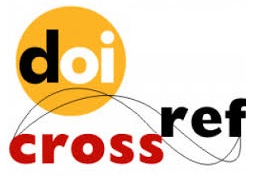Impact of Collaborative Teaching Techniques in Classroom on Higher Order Thinking Development among Elementary Students
DOI:
https://doi.org/10.58932/MULI0016Keywords:
collaborative teaching strategies, higher-order thinking, experimental approachAbstract
By experimental research approach, this study investigates how collaborative teaching strategies affect the higher-order thinking abilities of elementary school pupils. The 80 students in the sample were split into two groups: the experimental group received collaborative teaching methods such peer discussions, problem-solving activities, and cooperative learning methodologies, while the control group received traditional lecture instruction. Collected data from control and experimental group was analyzed by using t-test. The results show that although both teaching approaches increased student learning, collaborative teaching greatly improved students' analytical, problem-solving, and critical thinking abilities. Significant progress was made by both high and low-achieving students in the experimental group, highlighting the value of interactive learning. To improve learning outcomes, the study suggests implementing blended learning, incorporating collaborative instructional strategies, and offering extra assistance to students who are having difficulty. The importance of collaborative teaching in elementary schools is demonstrated by these findings.
References
AbuSeileek, A. F. (2012). The effect of computer-assisted cooperative learning methods and group size on the EFL learners’ achievement in communication skills. Computers & Education, 58(1), 231-239. https://doi.org/10.1016/j.compedu.2011.07.011
Dewi, C. A., Erna, M. M., Haris, I., & Kundera, I. N. (2021). The effect of contextual collaborative learning based ethnoscience to increase student’s scientific literacy ability. Journal of Turkish Science Education (TUSED), 18(3), 525-541.
Ghani, A. A., Zakaria, E. & Rahman, S. (2016). The impact of using visualization technique towards mathematics problem solving involving hots question. Proceedings of International Conference on Mathematics and Science Education, Universitas Pendidikan Indonesia, Bandung: West Jawa, Indonesia. Pp 53-59
Kalaivani, K., & Tarmizi, R. A. (2014). Assessing thinking skills: A case of problem-based learning in learning of Algebra among Malaysian Form Four students. Journal of International Academic Research for Multidisciplinary, 2(3), 166–173. https://doi.org/10.37934/arsbs.19.1.8089
Khalid, F. (2017). Understanding university students use of facebook for collaborative learning. International Journal of Information and Education Technology, 7(8), 595-600.
Mahamod, &., & Hassan, J. (2018). Knowledge, skill and attitude of Malay language teachers in using problem-based learning approach. Journal of Advance Research in Dynamical and Control System, 10(12), 1482–1487.
Sarmila, M. S., Zaimah, R., & Lyndon, N. (2018). Corporate social responsibility collaborative strategies for local communities. International Journal of Engineering & Technology, 7(2), 596-601
Sarmila, M. S., Zaimah, R., & Lyndon, N. (2018). Corporate social responsibility collaborative strategies for local communities. International Journal of Engineering & Technology, 7(2). 596-601.
Sekwena, G. L. (2023). Active learning pedagogy for enriching economics students’ higher order thinking skills. International Journal of Learning, Teaching and Educational Research, 22(3), 241-255. https://doi.org/10.26803/ijlter.22.3.15
Tang, T. (2020). Developing critical thinking, collective creativity skills and problem solving through playful design jams. Thinking Skills and Creativity, 37(8), 10-16. https://doi.org/10.1016/j.tsc.2020.100696
Yen, T. S. & Shalili, S. H. (2015). Effective Teaching of Higher Order Thinking (HOT) in Education. The Online Journal of Distance Education and e–Learning, 3(2), 28-39.
Yen, T. S. & Shalili, S. H. (2015). Effective Teaching of Higher Order Thinking (HOT) in Education. The Online Journal of Distance Education and e–Learning, 3(2), 133-149.
Zakariya, Y. F., Ibrahim, M. O., & Adisa, L. O. (2016). Impacts of problem-based learning on performance and retention in Mathematics among junior secondary school students in Sabon-Gari area of Kaduna State. International Journal for Innovative Research in Multidisciplinary Field, 2(9), 42–47.
Zhou, X., Chen, L. H., & Chen, C. L. (2019). Collaborative learning by teaching: A pedagogy between learner-centered and learner-driven. Sustainability, 11(4), 11-14. https://doi.org/10.3390/su11041174








